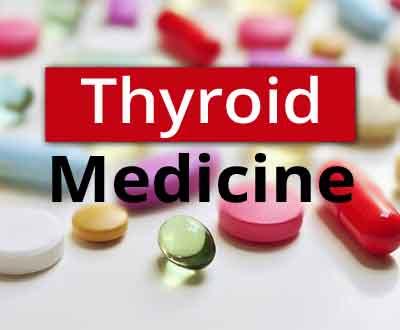- Home
- Editorial
- News
- Practice Guidelines
- Anesthesiology Guidelines
- Cancer Guidelines
- Cardiac Sciences Guidelines
- Critical Care Guidelines
- Dentistry Guidelines
- Dermatology Guidelines
- Diabetes and Endo Guidelines
- Diagnostics Guidelines
- ENT Guidelines
- Featured Practice Guidelines
- Gastroenterology Guidelines
- Geriatrics Guidelines
- Medicine Guidelines
- Nephrology Guidelines
- Neurosciences Guidelines
- Obs and Gynae Guidelines
- Ophthalmology Guidelines
- Orthopaedics Guidelines
- Paediatrics Guidelines
- Psychiatry Guidelines
- Pulmonology Guidelines
- Radiology Guidelines
- Surgery Guidelines
- Urology Guidelines
Giving more pregnant women common thyroid medicine may reduce risk of complications

Extending the number of pregnant women given the common drug levothyroxine to boost thyroid hormone levels may lead to a reduced number of stillbirths, early caesarean sections and low-weight babies, according to a new study presented at the Society for Endocrinology annual conference in Brighton.
The thyroid gland is an organ found in the base of the neck. It produces essential hormones that control the body's metabolism the way we use energy. Thyroid hormones are also critical for fetal brain development, but babies cannot make any of their own until the second trimester and have to source all of it from their mothers.
2-3% of pregnant women have mild hypothyroidism, meaning they have low levels of thyroid hormones. This can be treated with a hormone replacement drug called levothyroxine.
In this study, researchers from the University of Cardiff investigated whether pregnant women with mild hypothyroidism and their babies would also benefit from levothyroxine treatment. They combined data from a thyroid screening study and linked it to routinely collected clinical data to study the effect of correcting borderline thyroid function on obstetric outcomes.
The researchers analysed over 13,000 women who were 12-16 weeks pregnant, 518 of whom had mild hypothyroidism. Of these, 263 women received levothyroxine and the rest received no treatment. They assessed the women's pregnancy outcomes by measuring stillbirth rates, preterm delivery, length of stay at hospital, birth weight and the number of early caesarean sections.
They found that women with mild hypothyroidism treated with levothyroxine had a lower risk of giving birth to low weight babies and were also less likely to undergo an early caesarean. Untreated women with mild hypothyroidism were more likely to have a stillbirth than women with normal thyroid function and no stillbirths occurred in the treated group. However, there was no significant difference between the other obstetric outcomes or when all outcomes were combined.
"Our work raises the possibility of providing real benefits from using a safe, cheap and well established treatment by simply extending it to the number of pregnant women we treat," said Dr Peter Taylor, lead author of the study.
While further trials are needed to confirm these findings, Dr Taylor believes more substantial benefits might be found by treating the pregnant women at an earlier stage than used in this study. "We should consider universal thyroid screening in pregnancy as it compares favourably in terms of cost-effectiveness with other conditions that we currently screen for," he added.

Disclaimer: This site is primarily intended for healthcare professionals. Any content/information on this website does not replace the advice of medical and/or health professionals and should not be construed as medical/diagnostic advice/endorsement or prescription. Use of this site is subject to our terms of use, privacy policy, advertisement policy. © 2020 Minerva Medical Treatment Pvt Ltd